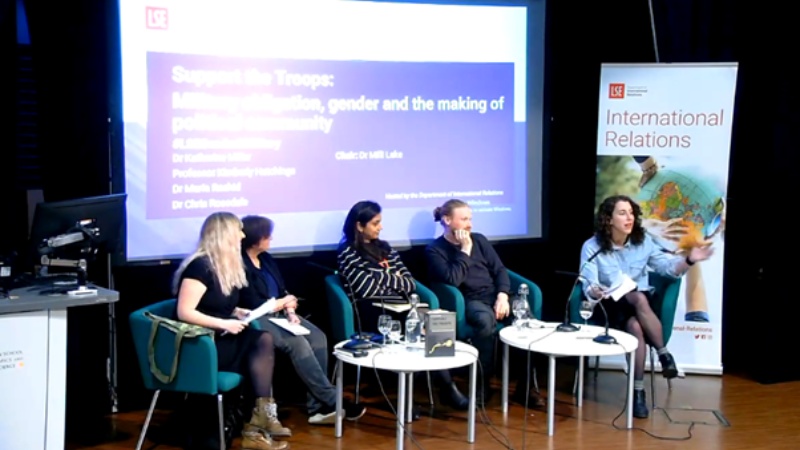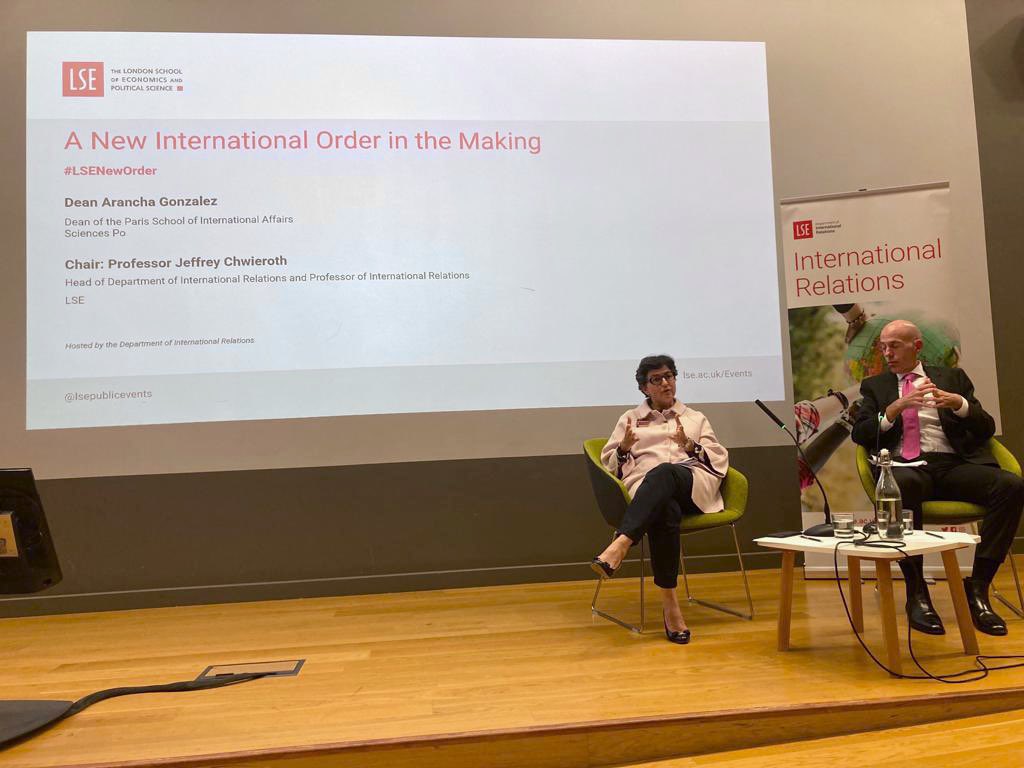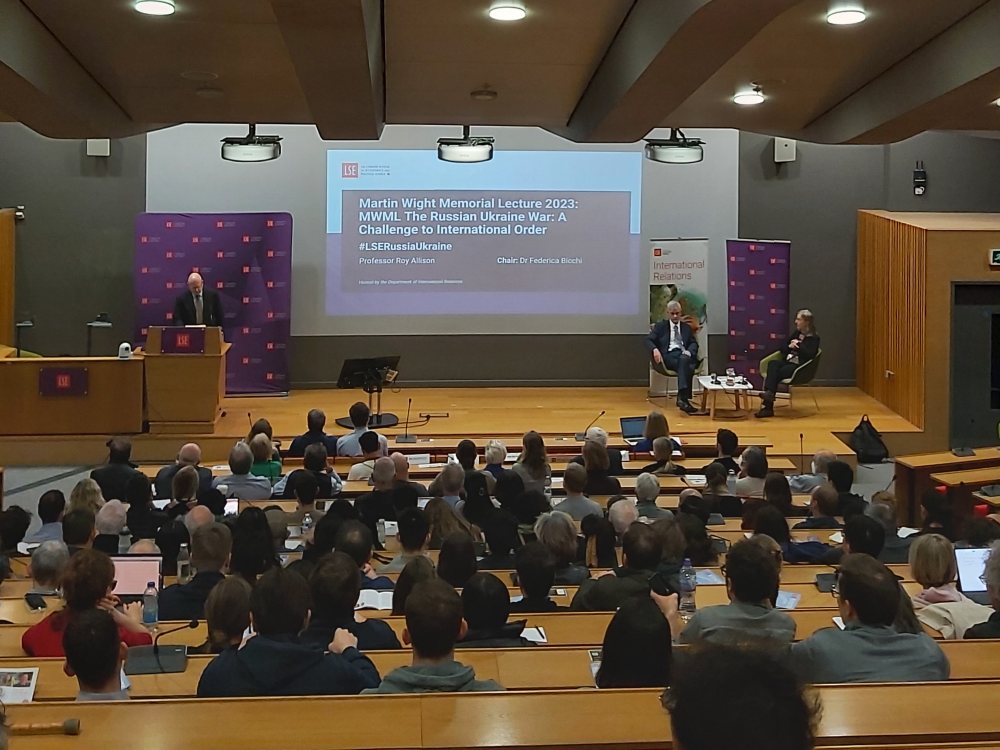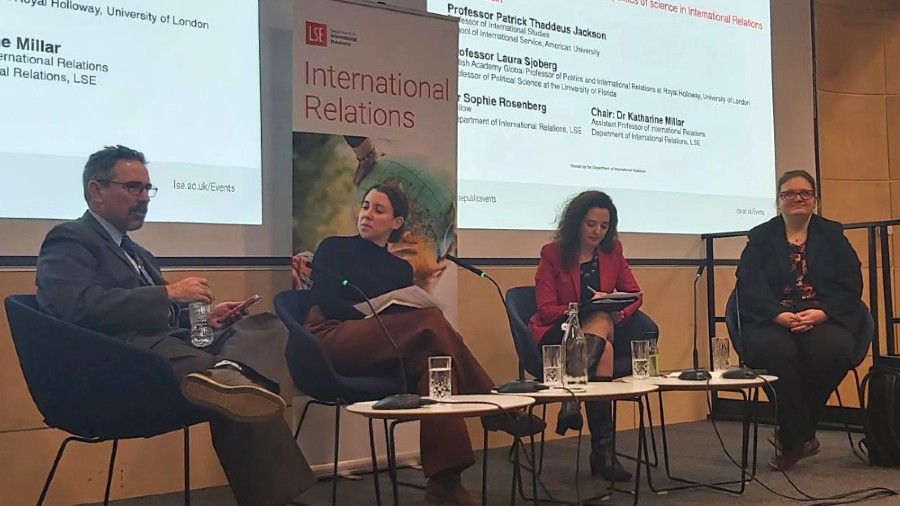On Wednesday 8 March 2023, a panel consisting of Dr Corneliu Bjola, Associate Professor of Diplomatic Studies, University of Oxford, Ms Sarah Bressan, Senior Researcher at the Global Public Policy Institute (GPPi), Mr Nicola Minasi, Director of the Crisis Unit, Ministry of Foreign Affairs of Italy, and chaired by Dr Federica Bicchi, Associate Professor, Department of International Relations, LSE, came together to discuss the future (and the present) of digital foreign policy.
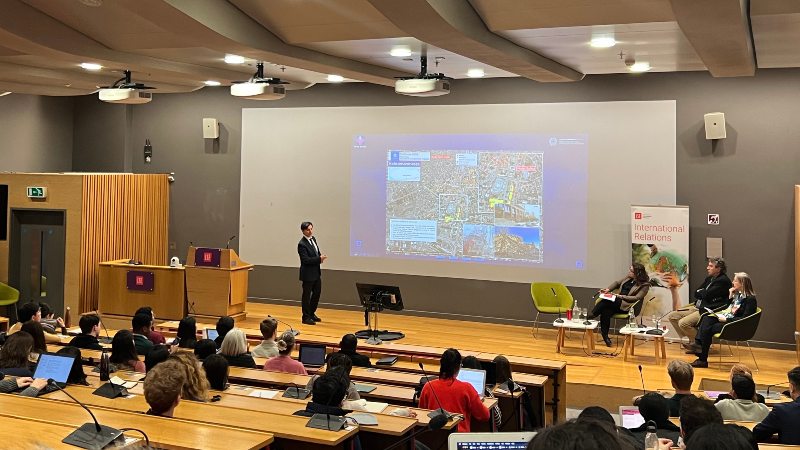
L to R: Nicola Minasi, Sarah Bressan, Corneliu Bjola, Federica Bicchi (Chair)
The conversation was opened by an amazing video created by a group of LSE IR students, which depicted the digital life of a diplomat based on the functions of communication, data collection, and negotiations.
Dr Bjola outlined the early three stages of digital foreign policy, starting with the Arab Spring, moving on to the shadow of technology in 2016, and then transitioning to hybrid diplomacy during and after the Pandemic. Data, speed, and pervasiveness as the defining characteristics of the digital age, according to Dr Bjola, could have serious ramifications in terms of technological competition, data governance, and international orders, or the so-called ‘digital orders’.
Inspired by ideas from the former CEO of Google Eric Schmidt, Dr Bjola ended up with a thought-provoking point on power: “In the digital age, power is innovation, actuate by the constantly innovate [faster and better than its competitors] or not, and how to organise yourself in order to innovate [effectively].” This prompted audiences to wonder whether those in charge of data and whose system innovates the best will wield power.
The digital age creates fundamentally a need for greater data processing power
This led to Ms Bressan’s claim that ‘the digital age creates fundamentally a need for greater data processing power’. It is undeniable that a growing number of political events were significantly influenced by disinformation due to the speed at which information is disseminated. As a result, diplomats need to comprehend the threats and devise strategies for mitigating them. However, according to Ms Bressan, low-tech and high-tech solutions are still underdeveloped at the current stage. Notwithstanding the extremely divergent views on the use of data science, which includes techniques like statistical and textual analysis, machine learning, and algorithms, she emphasised that ‘to harness the power of the digital and keep up, diplomacy has to evolve or become less relevant.’
The conversation was progressed further by Mr Minasi’s comment on the student-produced video, in which he expressed his views that WhatsApp has a greater influence on diplomatic communications in the digital age compared to other social media tools. He discussed that digital foreign policy includes online interactions with the public, as well as data collection for early warning strategies.
Taking the examples of war in Ukraine and the Turkish earthquake, Mr Minasi explained how tools like WhatsApp, live online videos, Google Maps and satellite data could play crucial roles in gathering information and reaching people’s locations in crisis moments. Thus, he believed that collecting information, analysing open-source data, and effectively communicating throughout daily operations are becoming increasingly important components of foreign policy in the digital age.
To harness the power of the digital and keep up, diplomacy has to evolve or become less relevant.
In the second half of the event, audiences actively addressed concerns about the digital impact of consular services, the significance of physical interactions, and open-source intelligence. In response to concerns about using open-source information for crisis early warning, Ms Bressan acknowledged that there is still a long way to go from technical analysis to policy response, particularly given that diplomacy is generally seen as unfit for innovation.
Overall, while the interactions between technology and foreign policy remain a nascent area of study, it presents an exciting opportunity to engage with and contribute to ongoing developments. To navigate the complex landscape of digital foreign policy, individuals are encouraged to take an open-minded, nuanced approach and be expectant of the ever-evolving changes in the digital age.
Event report by Hongli Liu, MSc International Relations (Research)
Note: The student blogger played a part in the student-made video presented at this event.



